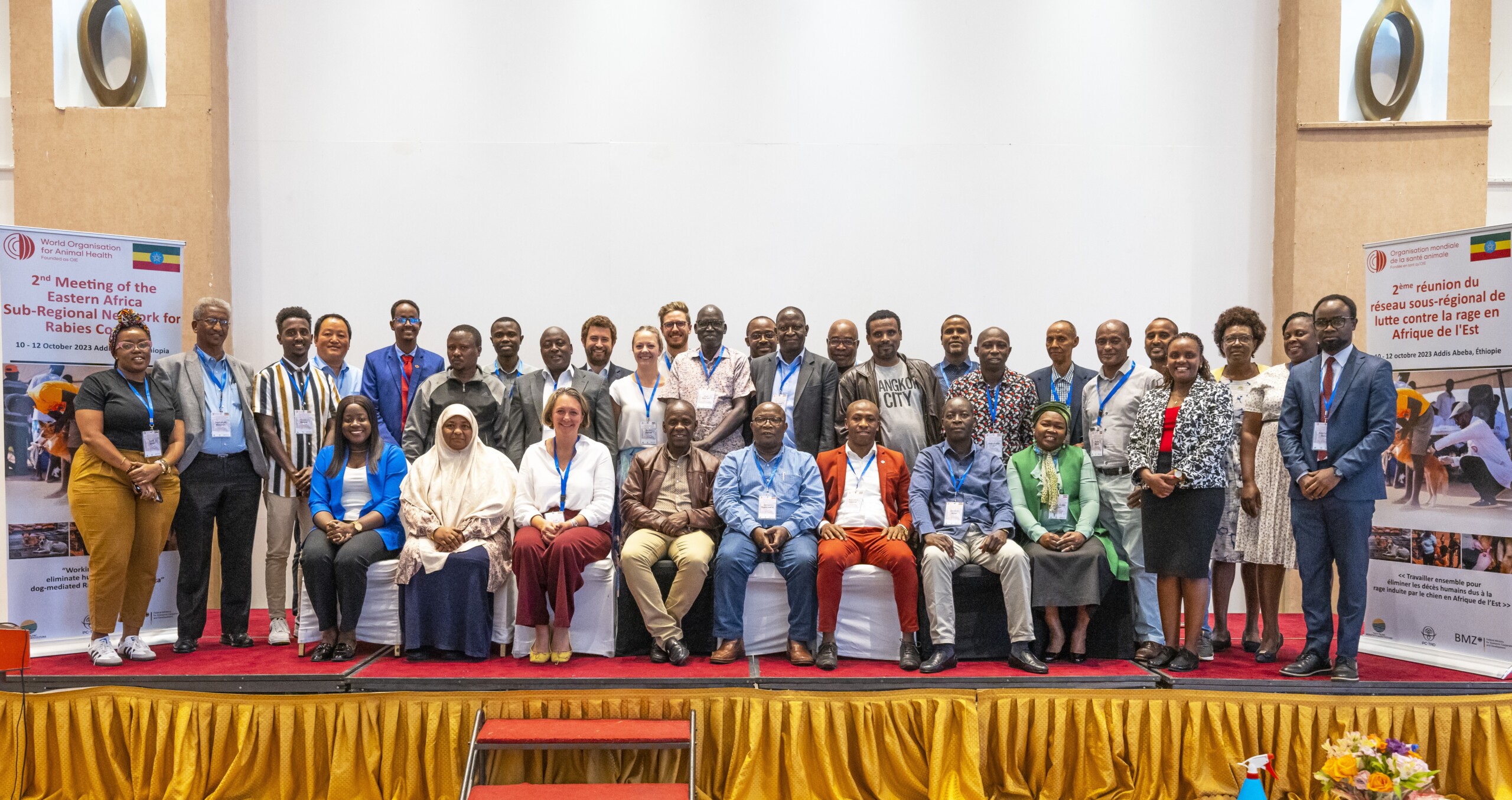Rabies, a deadly yet preventable disease, continues to pose a significant threat to human and animal populations across Eastern Africa. While some countries have made significant strides in controlling the disease, others are facing significant challenges in implementing effective surveillance and control measures.
The World Organisation for Animal Health (WOAH), hosted by the Federal Government of Ethiopia, convened the 2nd rabies network meeting on rabies control in Addis Ababa, Ethiopia from 10-12 October 2023. The meeting was attended by partners including the Global Alliance for Rabies Control (GARC), under the Pan African Rabies Control Network (PARACON), the Food and Agricultural Organisation of the United Nations (FAO) and the World Health Organization (WHO), The meeting convened a diverse group of stakeholders from twelve countries in Eastern Africa to address the pressing challenge of dog-mediated rabies.
During the meeting, the experts highlighted the importance of data in decision-making and the critical role of surveillance systems in detecting and responding to cases. They also emphasised the need for increased investment in mass vaccination campaigns and capacity building in rabies diagnosis and testing.
While countries like Kenya and Eritrea have developed comprehensive national strategic plans for rabies control and have made significant progress in the implementation of these national plans, others have yet to develop national strategies for rabies. Several countries to establish robust surveillance systems or conduct regular testing. In addition, through the WOAH rabies vaccine bank, Members have benefited from vaccines to conduct mass dog vaccination campaigns targeted at eliminating the disease at its animal source.
Rabies serves as a model for operationalizing the One Health approach in countries, necessitating multisectoral engagement by stakeholders in the animal and human health sectors. As demonstrated from this meeting, this collaboration is instrumental for the success of national rabies programmes, encompassing surveillance, monitoring of cases and outbreaks, mass dog vaccination campaigns, and dog population management. The ability of countries to collect and report rabies surveillance data across different sectors is essential for tracking investments and assessing national programmes and actions.
All countries in the sub-region highlighted the problem of rabies control in community-owned and free- roaming dogs and the wider implications around responsible dog ownership and highlighted the complexities around dog population management. They noted the need to evaluate the options for dog population management, particularly the management of free-roaming dogs, that would be cost-effective and in line with existing animal welfare guidelines.
Another of the key challenges facing the sub-region is the lack of accurate and comprehensive data for rabies control programmes. Informal reports are often relied on and official information on human cases that do not reflect the true extent of the problem, rendering rabies control efforts inefficient and ineffective. This makes it challenging to determine and develop evidence-based interventions and track progress. Therefore, the need for improved surveillance systems and reliable data cannot be overemphasised, this can be enhanced through advocacy and sensitisation of the masses on the importance of information exchange and sharing among key stakeholders.
It is imperative that all countries in this region prioritise rabies control programmes and commit to implementing effective surveillance and control measures. This should include investing in the necessary resources and capacity-building initiatives, such as training programmes, sensitisation and advocacy and increase the number of diagnostic laboratories. Additionally, data sharing and collaboration should be promoted to ensure that best practices and strategies are distributed widely within networks.
Rabies cannot be eradicated overnight, but with coordinated efforts and a commitment to evidence-based decision-making, the countries in this region can work together to effectively combat this deadly and preventable disease. By prioritising rabies control and investing in surveillance and control measures, Members can protect human and animal populations and move towards a healthier, more sustainable future. The meeting aimed to operationalise the One Health approach in the region and advance the global target of eliminating human deaths from dog-mediated rabies by 2030.
Contact:
Dr Lillian Wambua – Regional One Health Officer
Email: [email protected]

